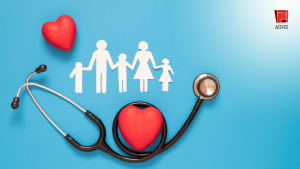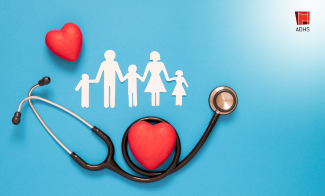 As Arizona’s statewide public health agency, we spent much of last week celebrating National Public Health Week by focusing on you and your community, wherever you are in Arizona. Our hope was to draw more attention to the issues that are important to improving the public’s health and the power of community across our state.
As Arizona’s statewide public health agency, we spent much of last week celebrating National Public Health Week by focusing on you and your community, wherever you are in Arizona. Our hope was to draw more attention to the issues that are important to improving the public’s health and the power of community across our state.
The overall message – Centering and Celebrating Cultures in Health – focused on addressing and preventing the underlying causes of poor health in our state, to ensure everyone, in all cultural communities, has a chance to live a long and healthy life.
We blogged each day last week on topics that are essential to that mission. In case you didn’t have the chance to read each day, here is a recap of those important messages.
Monday: Since 1995 the American Public Health Association has led the celebration of National Public Health Week to recognize the contributions of public health professionals across America. Community is where we are. It’s our connections with others who share similar interests, attitudes and goals, and while that has changed in the last few years we highlight the people and teams across ADHS that help bring us together.
Tuesday: Bringing awareness to violence prevention improves the safety of Arizona communities. Public health draws on a science base that is multi-disciplinary. This allows us to gather knowledge from a broad range of disciplines including medicine, epidemiology, sociology, psychology, criminology, education, and economics. Coupled with a cross-sector approach, public health is poised to tackle violence prevention that strives to provide the maximum benefit for the largest number of people.
Wednesday: Family planning services and community programs improve the health of women of childbearing age before, during, and after pregnancy. An estimated 2 million unplanned pregnancies are prevented each year due to family planning services obtained through Title X, Medicaid, and other publicly funded programs. The ADHS Family Planning Program offers a statewide, clinic-based approach. Cost-effective comprehensive family planning and reproductive health services are available for Arizona’s men, women, and adolescents. In 2022, Family Planning programs provided over 3,000 services to more than 1,700 Arizonans whose incomes were below the poverty level and otherwise would not be able to afford services.
Thursday: Arizona is using data and community feedback to help address mental health in our state
Like physical health, mental health is important throughout the lifespan. It continuously affects how we think, feel, and act. It also plays an important role in our physical and social well-being. Many factors can impact our mental health, including early adverse life experiences, experiences related to chronic medical conditions, biological factors, feelings of loneliness or isolation, and various life stressors (like financial hardship). Mental health conditions are very common with more than half of Americans diagnosed with a mental illness or disorder at some point in their lifetime.
Friday: ADHS initiatives are working to improve healthcare access in Arizona’s most rural communities
In Arizona, 25% percent of the population lives in rural areas, far higher than the national average. That’s likely due to the landscape and environment we live in.. Arizona continues to experience a disproportionate distribution of primary care providers, especially in these rural areas. Several initiatives across ADHS are focused on strengthening the workforce in Arizona’s most rural communities.
Over the weekend, the celebration continued with two additional themes: Accessibility and Nutrition and Food. On the topic of Accessibility, about 26% of U.S. adults have a disability, though Native Americans and older adults are disproportionately affected by disabilities. Adults with disabilities are also more likely to have heart disease, be smokers and have diabetes than the general population. The Office of Health Equity supports the agency and external partners to adopt recognized health equity best practices. We have resources and tools available on our website.
ADHS has a variety of programs that work hard to promote Nutrition and healthy eating and adequate nutrition. For example, AZ Health Zone has a variety of resources about eating healthy, locating community resources, and a large library of healthy and easy recipes! The Arizona WIC program provides resources for pregnant and breastfeeding parents and their families including nutrition education and breastfeeding support services, supplemental nutritious foods, and referrals to health and social services
Celebrating National Public Health Week is important in promoting the great work by all public health employees who dedicate their lives to improving their community. The impact of the work by ADHS and our public health colleagues continues after the recognition month ends and we will continue to focus year-round on improving the health and wellness of all Arizonans.










